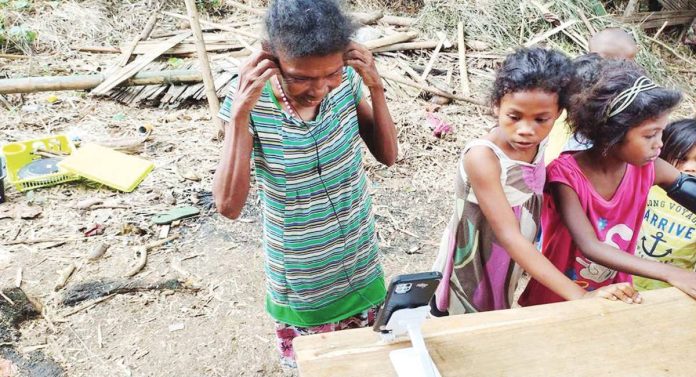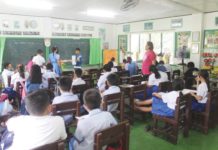
ILOILO — For years, Leonisa Lumangyao, leader of the Dacal Ati Association, knew the limits of healthcare in her community. Among the Ati, first aid often meant herbal remedies passed down through generations. If these failed after a few days, only then would they seek a doctor, an expensive and logistically difficult trip to town.
“When the pandemic hit, the worry doubled,” she recalled. “If we got sick, we had to think about medicine and the cost of traveling to the town for check-ups. Pamasahe pa lang, doble na. So instead of buying medicine, nauubos na sa pamasahe.”
That changed when researchers from the University of San Agustin launched the ATIPAN Project, a mobile healthcare initiative that partners with doctors and trains them in cultural sensitivity before serving Indigenous Peoples (IPs).
In San Enrique town, the program bridged gaps by bringing medical consultations, medicines, and even telehealth services directly to the Ati community.
Leonisa, who now serves as a health coordinator, says the project didn’t just bring healthcare closer — it changed her personally.
“Na-empower ako. Before, I was shy to talk even in my own community. Now, because of the training and workshops, I can speak, I can advocate. I realized the Ati can also belong anywhere,” she said.
She has taken that advocacy beyond her own people, extending help to non-Ati residents in need.
“We Ati have big hearts. If someone needs a check-up, even if they’re not Ati, we try to help. That’s what ATIPAN taught me — care doesn’t stop at the boundary of our tribe,” said Leonisa.
The ATIPAN Project — meaning “to take care” — is an initiative of the University of San Agustin Center for Heritage and Indigenous Cultures (CHIC) and Center for Informatics (CFI). It was born out of research during the COVID-19 pandemic, when university experts, led by Indigenous Communities researcher Prof. John Paul Petrola, discovered the acute health service gaps faced by the Ati. Many communities were not only far from clinics but also struggled with the cost of transportation and medicine, making treatment inaccessible for most.
To address this, ATIPAN brings healthcare directly to Indigenous Peoples and rural low-income areas across Western Visayas. The project now serves Ati communities in Aklan, Antique, Capiz, Iloilo, Guimaras, and Negros Occidental, and is expanding to more remote locations like Janiuay and Guimbal, as well as the Tapaz Bukidnon community in Capiz. It also reaches non-IP communities in remote mountain barangays and sugarland areas where public health services are scarce.
ATIPAN’s approach is unique: before doctors serve in IP communities, they undergo sensitivity training to understand cultural beliefs, traditional healing practices, and the social realities of the people they will care for. They are also trained in gender sensitivity and proper handling of sensitive health data, ensuring that patients are treated with respect and trust.
The program also embraces modern solutions like telehealth, using online consultations and even satellite internet in areas without stable connectivity.
For mental health, ATIPAN runs workshops and telepsychiatry sessions so that patients in far-flung villages can access professional care without traveling long distances.
According to co-investigator Dr. Roselle Leah Rivera, the project has gathered valuable data showing systemic healthcare gaps in marginalized communities. This data, she said, could inform policy and potentially scale the model to other parts of the country.
“Our goal is not just to treat people, but to strengthen community leadership so they can demand the services they deserve from the government,” she added.
For Leonisa and the Ati of San Enrique, ATIPAN has done more than provide medicine — it has given them confidence, visibility, and a stronger voice.
“Before, when we went to the Rural Health Unit, sometimes there was no medicine. Now, doctors understand us better. I can speak for my community, and for others, because ATIPAN gave me that voice,” she said./PN




